
Leave message
Can’t find what you’re looking for?
Fill out this form to inquire about our custom protein services!
Inquire about our Custom Services >>


































 Limited Edition Golden Llama is here! Check out how you can get one.
Limited Edition Golden Llama is here! Check out how you can get one.  Limited Edition Golden Llama is here! Check out how you can get one.
Limited Edition Golden Llama is here! Check out how you can get one.
 Offering SPR-BLI Services - Proteins provided for free!
Offering SPR-BLI Services - Proteins provided for free! Get your ComboX free sample to test now!
Get your ComboX free sample to test now!
 Time Limited Offer: Welcome Gift for New Customers !
Time Limited Offer: Welcome Gift for New Customers !  Shipping Price Reduction for EU Regions
Shipping Price Reduction for EU Regions
> CRISPR-Cas technology: Targeted Genome Editing Technology
ACROBiosystems focuses on the field of cell and gene therapy. As a leading supplier of recombinant proteins, ACROBiosystems has launched the CAS series nuclease including Cas9 and Cas12a. These proteins are mainly used for targeted gene editing to provide high editing efficiency.
![]() Product Features:
Product Features:
![]() Product List:
Product List:
| Molecule | Cat. No. | Product Description | Preorder/Order |
|---|---|---|---|
| Cas9 | CA9-S5149 | NLS-Cas9 Nuclease GENPower | |
| Cas12a | CAA-L5149 | NLS-Cas12a Nuclease GENPower |
The interactions between prokaryotes and the viruses that infect them have evolved, leading to a wide diversity of CRISPR-Cas systems. CRISPR-Cas systems are generally divided into two categories (Class 1 and Class 2). To date, most researchers have used the Type 2 CRISPR-Cas system, and in this class, the most studied type II is the CRISPR-Cas9 system.
CRISPR/Cas9 system involves two essential components: target-specific CRISPR gRNA and Cas9 nuclease. In eukaryotic systems, CRISPR/Cas9 is used for genomic editing through specific targeting of DNA by sgRNA, a combination of the CRISPR RNA (crRNA) and the trans-activating crRNA (tracrRNA), mediated through base pairing over the ~20-nt guide sequence [1]. Cas9 recognizes a very short conserved sequence (a few nucleotides in length) adjacent to the guide sequence called the “protospacer adjacent motif” (PAM). Once directed to the DNA target site, Cas9 generates a double-strand break (DSB) that can be repaired either through the indel mutation-introducing non-homologous end-joining (NHEJ) or the high-fidelity homologous directed repair (HDR), resulting in gene knockout effects or template-dependent gene replacement.
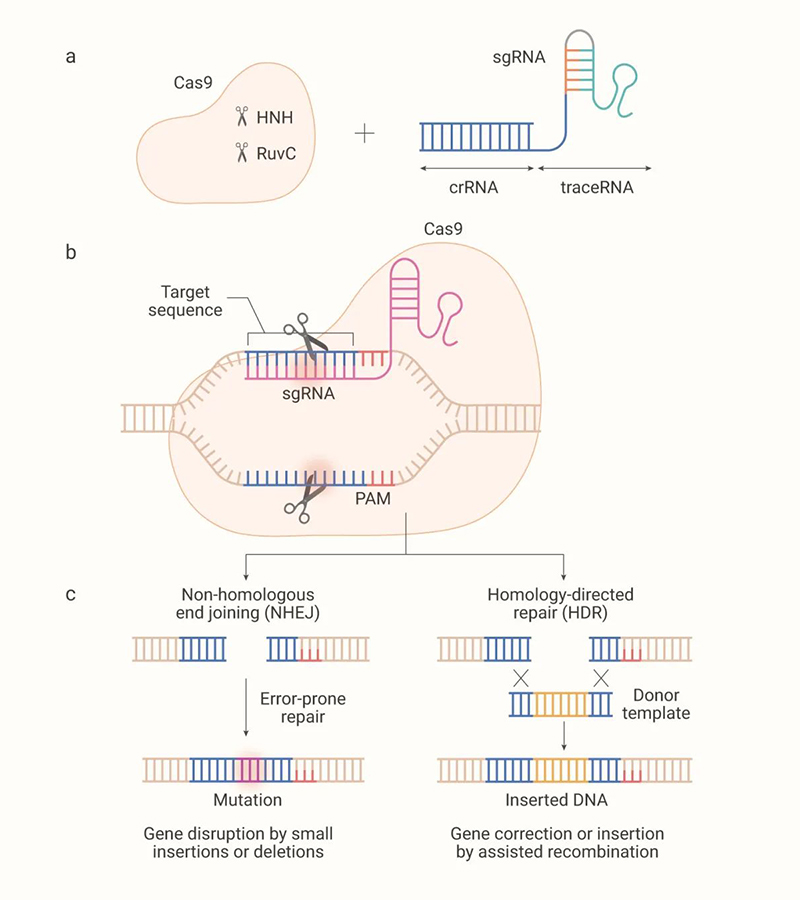 CRISPR-Cas9 regulatory mechanism: Repair of double-stranded DNA breaks by non-homologous end ligation (NHEJ) or homologous directed repair (HDR) endogenously[1]
CRISPR-Cas9 regulatory mechanism: Repair of double-stranded DNA breaks by non-homologous end ligation (NHEJ) or homologous directed repair (HDR) endogenously[1]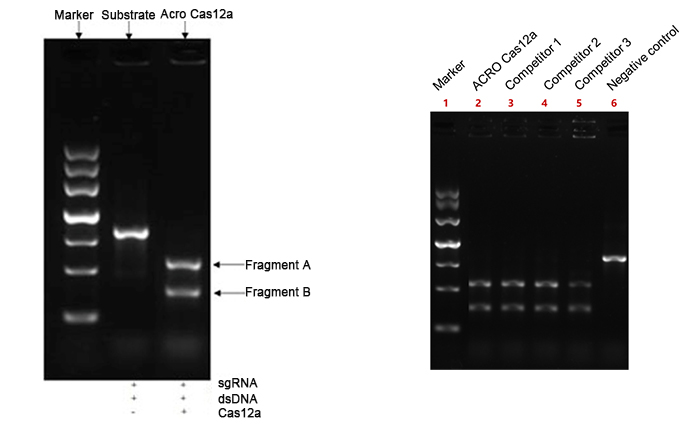
Measured by its ability to cleave a targeted DNA substrate. Cas12a achieves >90% substrate cleavage, comparable to competing products
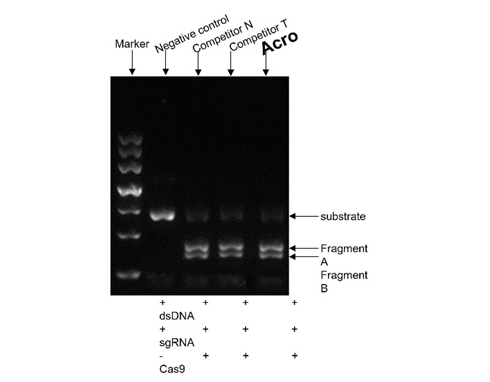
GENPower™ NLS-Cas9 Nuclease is evaluated in an in vitro DNA cleavage assay on a DNA fragment containing the target sequence. The activity of the GENPower™ NLS-Cas9 Nuclease is greater than 90% (QC tested).
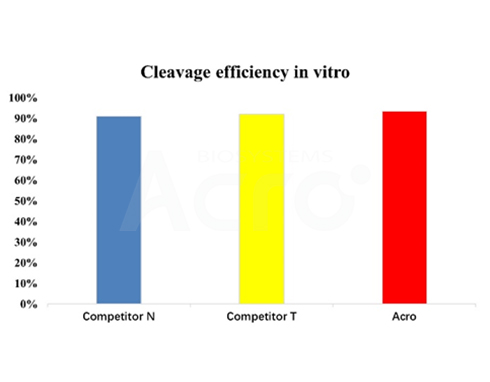
The cleavage activity of GENPower™ NLS-Cas9 Nuclease in vitro.
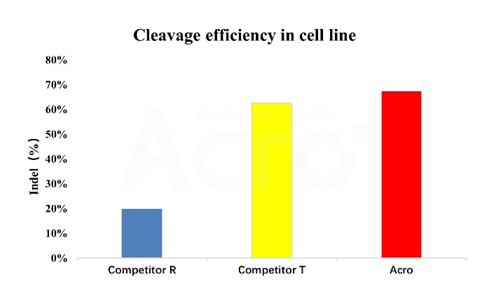
The cleavage activity of GENPower™ NLS-Cas9 Nuclease in cell line.
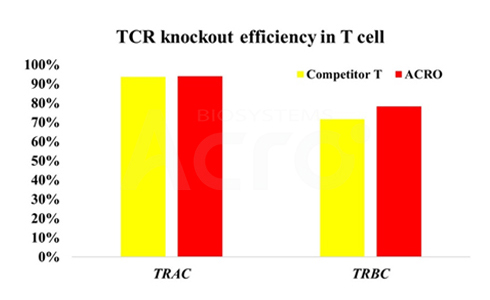
The cleavage activity of GENPower™ NLS-Cas9 Nuclease in human primary T cells.
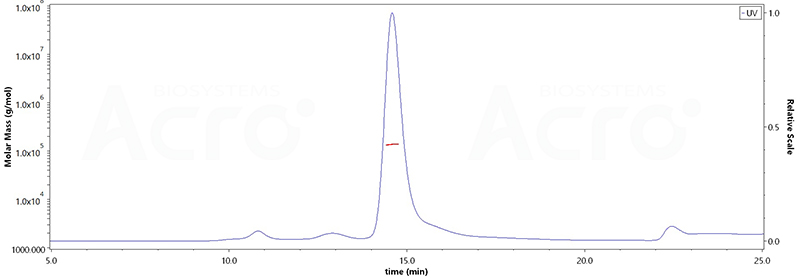
The purity of NLS-Cas12a Nuclease (Cat. No. CAA-L5149 ) is more than 90% and the molecular weight of this protein is around 135-165 kDa verified by SEC-MALS.
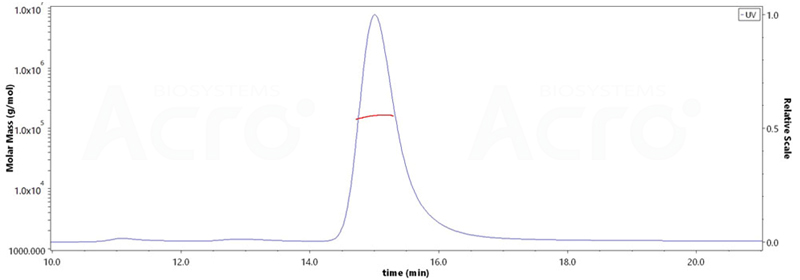
The purity of GENPower™ NLS-Cas9 Nuclease (Cat. No. CA9-S5149) is more than 95% and the molecular weight of this protein is around 145-165 kDa verified by SEC-MALS.
1. Westermann L, Neubauer B, Köttgen M. Nobel Prize 2020 in Chemistry honors CRISPR: a tool for rewriting the code of life. Pflugers Arch. 2021 Jan; 473(1):1-2.
2. Application of CRISPR/Cas9 gene editing in tumor immunotherapy
3. Zaib S, Saleem MA, Khan I. CRISPR-Cas9 Genome Engineering: Trends in Medicine and Health. Mini Rev Med Chem. 2022;22(3):410-421. doi: 10.2174/1389557521666210913112030. PMID: 34517795.
This web search service is supported by Google Inc.








